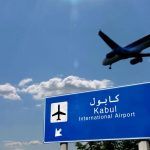In view of the serious international situation and the escalation of conflicts in different areas of Europe, the EU Foreign Affairs Ministers have held a series of meetings since May 18 in order to address the various current situations and reach consensus agreements:
Main results
EU Foreign Ministers exchanged views on the recent serious escalation of violence in Israel and the Occupied Palestinian Territories and discussed elements of the EU response.
EU High Representative for Foreign Affairs and Security Policy Josep Borrell summarized the general thrust of the discussion as follows:
- The priority is the immediate cessation of all violence and the implementation of a ceasefire, in order to protect civilians, and to allow full humanitarian access to Gaza.
- The escalation of violence in recent days has resulted in a large number of civilian deaths and injuries, including many women and children. This is unacceptable.
- Indiscriminate rocket attacks by Hamas and other terrorist groups into Israeli territory must be condemned.
- We fully support Israel’s right to defend itself. It must do so in a proportionate manner and with respect for international humanitarian law.
- The status quo of holy sites and the right to freedom of worship must be fully respected.
- It is important not to go ahead with evictions in Sheikh Jarrah, in line with the EU position on settlements.
- For there to be real security in Israel and Palestine, a real political solution is needed to bring peace. To this end, we need to re-establish a political horizon, explore possibilities for renewed engagement between the parties, develop confidence-building measures, improve the living conditions of the population and open the way for a possible resumption of the peace process.
- The holding of elections in Palestine should be considered a priority.
- The EU will renew its engagement with key partners such as the new US administration and a revived Quartet.
- The EU Special Representative for the Middle East Peace Process, Sven Koopmans, will travel to the region to meet with the Quartet, other partners and the parties to the conflict themselves.
Under “Other business”, ministers were also briefed on ongoing developments related to irregular migration in the Spanish city of Ceuta.
Ceuta
Following the political crisis unleashed between Morocco and Spain over the arrival of thousands of people in Ceuta, the Moroccan Foreign Minister, Naser Burita, declared that Spain is having a hostile attitude and denounced the fact that Spain did not consult Europe before welcoming the Polisario Front leader, Brahim Gali, on its territory. In view of the will of the Moroccan government to create discord between the European Union (EU) and the Government of Spain, Josep Borrell, the EU High Representative for Foreign Affairs and Security Policy, and referring to the political and diplomatic relations between Morocco and the European Union after the crisis started last week with Spain, declared in the informal videoconference of the Ministers of Foreign Affairs last May 18 that:
“Ceuta is the European border with Morocco, and the EU will do what is necessary to support Spain in the face of these difficult times. The highest priority now is to protect the lives of migrants and return Ceuta to normality. The EU has a strong and strategic partnership with Morocco, consolidated over many years of good cooperation. Migration management is part of that relationship, and must be managed in a spirit of cooperation and dialogue.” He similarly stated that Morocco has been a recipient of European funds for many years to help develop its economy. Although Borrell maintains that much of the EU’s work is to prevent crises from getting worse, he explains that “there is some aid that is conditioned by the behavior of the countries.”
Ceuta is the European border with Morocco, and the EU will do what is necessary to support Spain in these difficult times. The main priority now is to protect the lives of migrants and return Ceuta to normality (1/2) pic.twitter.com/THH2Aj9Bcx
— Josep Borrell Fontelles (@JosepBorrellF) May 18, 2021
The President of the European Council, Charles Michel, showed his support and solidarity to Spain and remarked that Spain’s borders are the borders of the European Union.
All our support and solidarity with Spain @sanchezcastejon
The borders of Spain are the borders of the European Union.
Cooperation, trust and shared commitments should be the principles of a strong relation between the European Union and Morocco.
— Charles Michel (@eucopresident) May 18, 2021
Speaking the President of the Spanish Government, Pedro Sánchez :
I have spoken with different political actors, both Spanish and European, to address the situation in a coordinated manner. The priority is to guarantee transit control at the border with Morocco and to provide Ceuta and Melilla with the necessary means to solve the crisis. pic.twitter.com/NDwFO061Nj
— Pedro Sánchez (@sanchezcastejon) May 18, 2021
Belarus
The Belarusian hijacking of an aircraft
On May 23, the Belarusian government forced a passenger plane carrying a Belarusian opposition leader to land in Minsk, where he was detained by the police. “This is a hijacking, an act of piracy perpetrated by a state”, commented Borrell, who described it as “extremely serious”. The European Council devoted priority attention to relations with Belarus among the items scheduled for its meeting on May 24 and strongly condemned the forced landing of a Ryanair flight in Minsk and the arrest by the Belarusian authorities of the journalist Raman Pratasevich and Sofia Sapega. In addition, a third package of sanctions was being prepared in the Foreign Affairs Council.
The sanctions already adopted by the EU are exclusively against Belarusian officials, including President Lukashenko, but Brussels is also preparing to hit central aspects of the Belarusian economy.
At the Brussels summit on Monday, May 24, the leaders of European countries “called for proposals for sanctions by sector (…) And there are some that come to mind,” Borrell said in an exclusive interview.
“Belarus is a major exporter of potash, for about $2.5 billion. All of that goes through the Baltic countries. It’s easy to control, if one really wants to,” Borrell said ahead of an informal meeting of European foreign ministers in Lisbon on May 26.
“We can also imagine that the gas coming to Europe through Belarus would come through another pipeline, and Belarus would lose the rights of way, which is not negligible,” he added.
Hijacking. Air Piracy. Playing Roulette with the lives of innocent civilians.
Enough.
Pratasevich and Sapega must be released.
Today EU27 leaders decided on new sanctions & other forceful measures against the #Belarus authorities. #EUCO pic.twitter.com/zzyk4FxlVH
— Charles Michel (@eucopresident) May 24, 2021
The European Council
- has demanded the immediate release of Raman Pratasevich and Sofia Sapega;
- requested the International Civil Aviation Organization to urgently investigate this incident;
- asked the Council to adopt as soon as possible appropriate sanctions against the relevant persons and entities;
- asked the Council to adopt additional targeted economic sanctions and requested the High Representative and the Commission to
- submit proposals in this regard without delay;
- called on all EU-based airlines to avoid overflying Belarus;
- asked the Council to take measures to ban overflight of EU airspace by Belarusian airlines and to prevent access of flights operated by Belarusian airlines to EU airports;
- expressed its solidarity with Latvia following the unjustified expulsion of Latvian diplomats.
Russia
EU leaders have held a strategic discussion on Russia. They condemned Russia’s illegal, disruptive and provocative activities carried out against the EU, its Member States and outside the EU. They reiterated the EU’s unity and solidarity in the face of such acts, as well as its support for Eastern partners. They also expressed their solidarity with the Czech Republic and supported its response.
The European Council reaffirmed its adherence to the five principles governing the EU’s policy towards Russia:
- full implementation of the Minsk Agreements,
- strengthening relations with the Eastern Partnership countries,
- strengthening the EU’s resilience in areas such as energy security, hybrid threats and strategic communication,
- selective cooperation with Russia on issues of clear interest to the EU,
- support for people-to-people contacts.
The leaders invited the High Representative and the Commission to present a report with options for action on EU-Russia relations in line with these principles in view of the European Council meeting in June 2021.
EU-UK relations
The European Council welcomed the entry into force on 1 May 2021 of the Trade and Cooperation Agreement between the European Union and the United Kingdom.
EU leaders stressed that relations with the UK must remain mutually beneficial and must under no circumstances undermine the integrity of the single market, the customs union or the EU’s decision-making autonomy. The European Council called on the Commission to continue its work to ensure full implementation of the Agreements, in particular in the areas of EU citizens’ rights, fisheries and a level playing field.
Middle East
The European Council welcomed the cease-fire, which should put an end to the violence. It reiterated the EU’s commitment to the two-state solution, and stated that it would work with its international partners to put a political process back on track.
Mali
The leaders strongly condemned the abduction of Mali’s transitional president and prime minister and called for their immediate release. The European Union is ready to consider sanctions against political and military leaders who obstruct the transition in Mali.






Leave a Reply